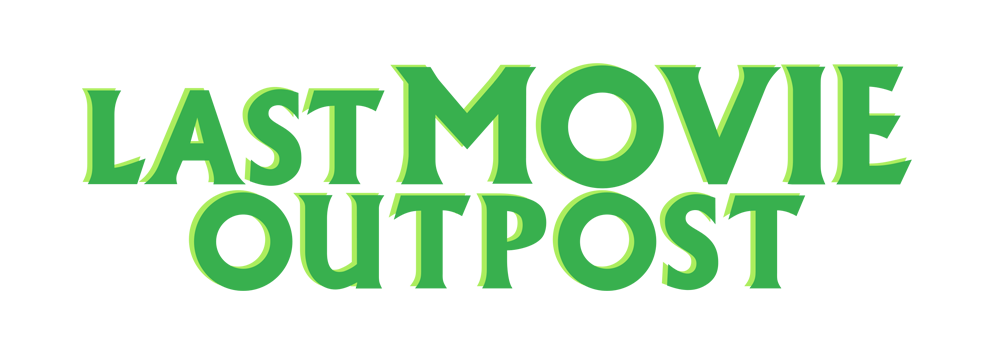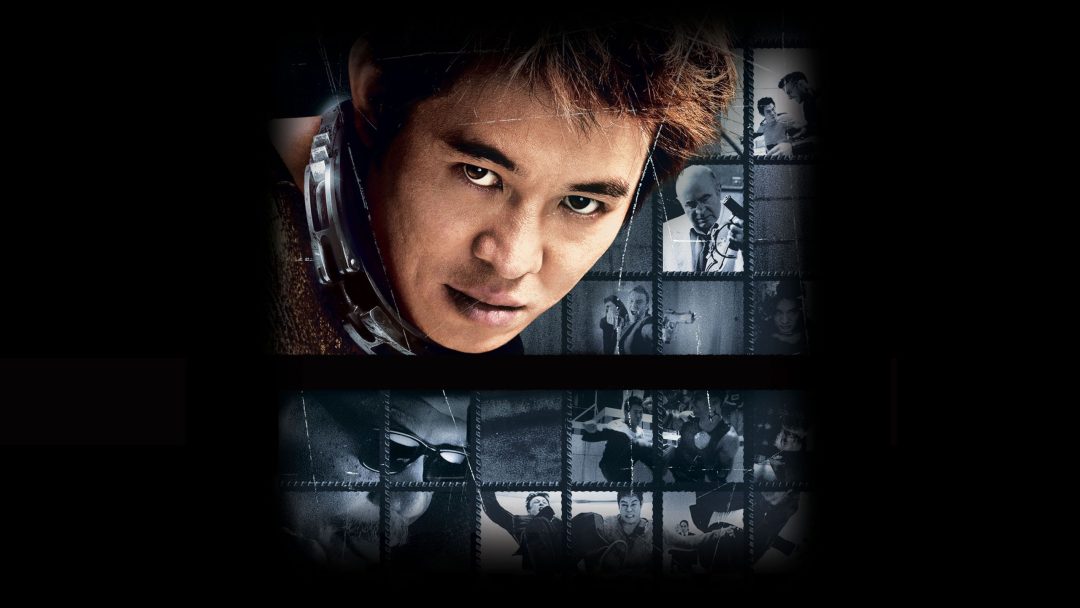Surely I am not the only one among us who has a list of movies on my phone? When I think of a movie I haven’t seen for a while and want to revisit, or become aware of a movie I like the sound of that I haven’t seen yet, it goes on the list. Then, when I find myself with some rare free time, I go straight to the list rather than doom-scrolling endlessly through an array of streaming platforms. It was this that led me back to Unleashed.
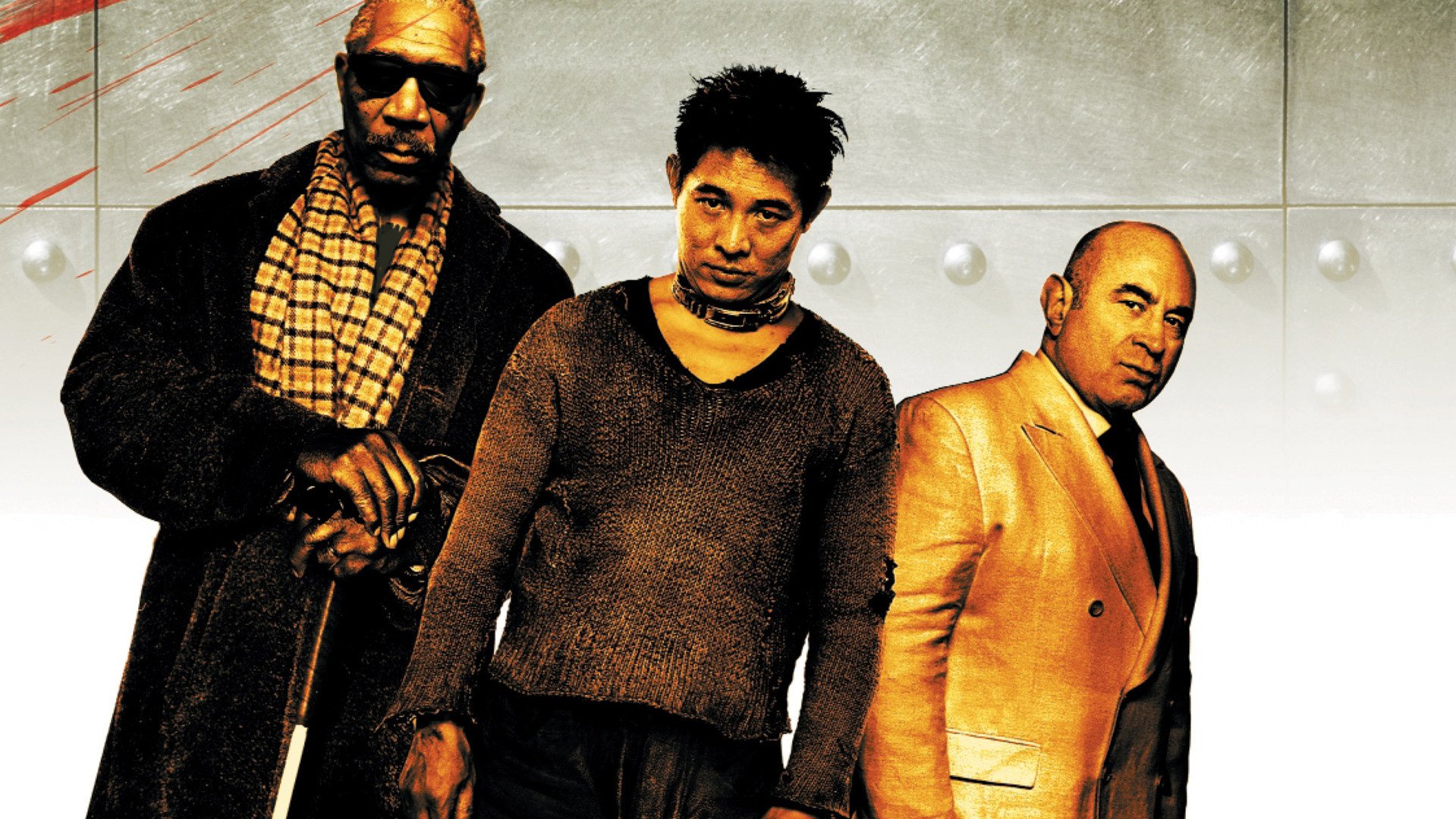
Unleashed
I saw this movie when it was first released, had a vague feeling that I really enjoyed it at the time, and then had somehow stricken it from my memory. I could remember almost nothing about it. This felt like it might have been a bad sign. Either way, I obtained the movie from the streamer on which it currently lived, cracked open a beer, and settled down.
Immediately you are hit with that Euro-gangster aesthetic. Guy Ritchie without the jokes, set among the post-industrial grime of a city, rather than the ghetto equivalent. Quite a few of the people behind this movie were also responsible for the original Taken, and it shows.
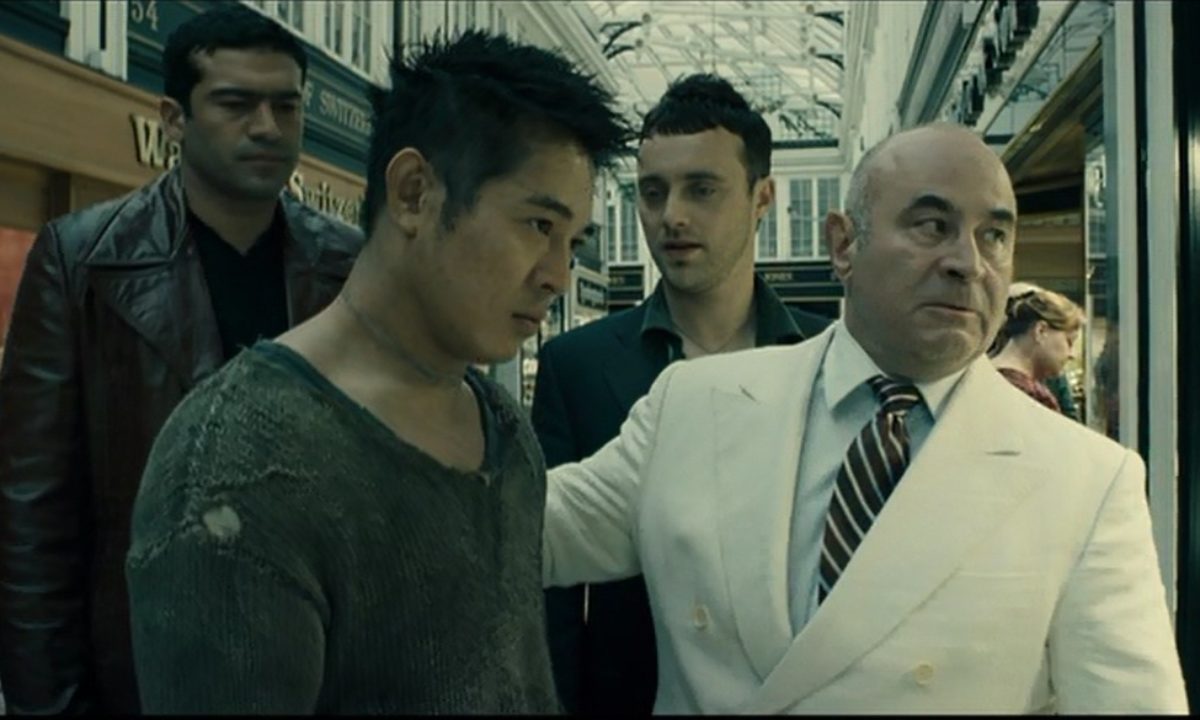
Striding right into the middle of this is Bob Hoskins, channeling his The Long Good Friday character, rather than Hook or Who Framed Roger Rabbit. Hoskins loved chewing a bit of scenery and it works here. He’s clearly having fun, so we are too.
Hoskins plays an ‘orrible bastard called Bart who is some kind of money lender and debt collector. Bart also dips his toes into some standard ‘orrible bastard gangster behavior such as unlicensed fights.
His not-so-secret weapon is Danny The Dog (Jet Li), a borderline mute who has been kept as his prisoner. He has been programmed and trained to be a beast of a fighter, only kept tame around Bart and his crew by a collar, the removal of which is his signal that he is being let off the leash, and attacks with ferocity and well-developed skills.
Bart has been using Danny to cut a swathe through the underworld. However, things do not go completely to plan. An incident leads to Danny on the run, and a chance encounter with Sam (Morgan Freeman) leads to the movie undergoing a complete switch in mood for its entire second act.
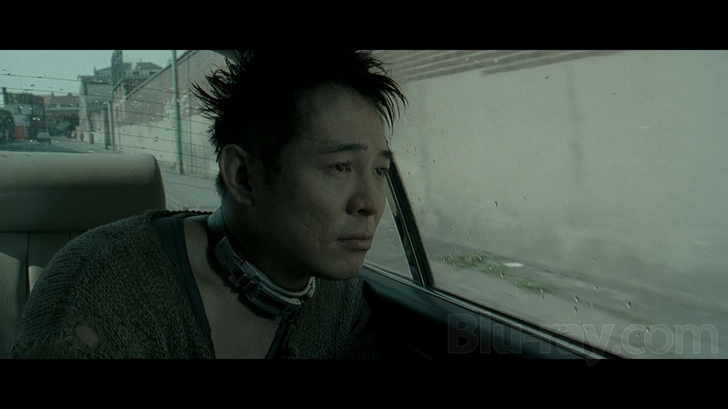
Sam is a blind piano teacher who lives with his music student daughter Victoria (Kerry Condon). They become the first people to ever show Danny any kind of humanity, and certainly any level of kindness.
There follow scenes of Danny finally understanding that he is not an attack dog. He begins to appreciate things like food and cookery, and how the real world works outside the cage he was kept in.
This sounds like it shouldn’t work. On paper, it probably doesn’t work, but it does here. The whole second section of the movie is effectively a triple header between Li, Freeman, and Condon and it’s pretty wonderful.
They connect emotionally and the audience does too. Seeing Danny discover things we take for granted, such as understanding the concept of colors and what an appetite is, just makes his previous life seem far more tragic.
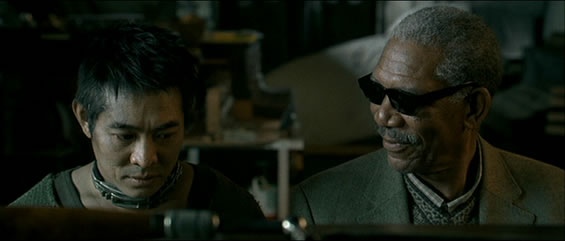
When he observes somebody caring for another human and expressing it through anger, such as when Sam shouts at Victoria because he was scared for her, Danny is genuinely confused. It is not just the words, but the complex human emotions he starts to feel for the first time that initially terrify him before he starts to open up.
Throughout this section music, and especially pianos, become a cipher for Danny’s growth and developing happiness. Freeman’s quiet smile when he hears Danny and his daughter playing a childish duet on a piano at home is truly heart-warming.
This should be a pile of cliched old shit, but it really isn’t. Somehow it manages to deftly dodge numerous pitfalls. Danny being shown kindness never gets old. His childlike innocence could be trite and twee, but it never is, such is the earnestness of Li’s performance.
The look of sheer wonder on Danny’s face when he gets paid for the first time, and has it explained to him that the money is his to do with as he pleases, completely sells the emotion.
Of course, this happy interlude cannot last. Just when the happiness starts to take hold, then questions start to be asked after a nasty incident in a local supermarket. Eventually, the horror and nastiness of his former life explodes into his new one, with predictable consequences.
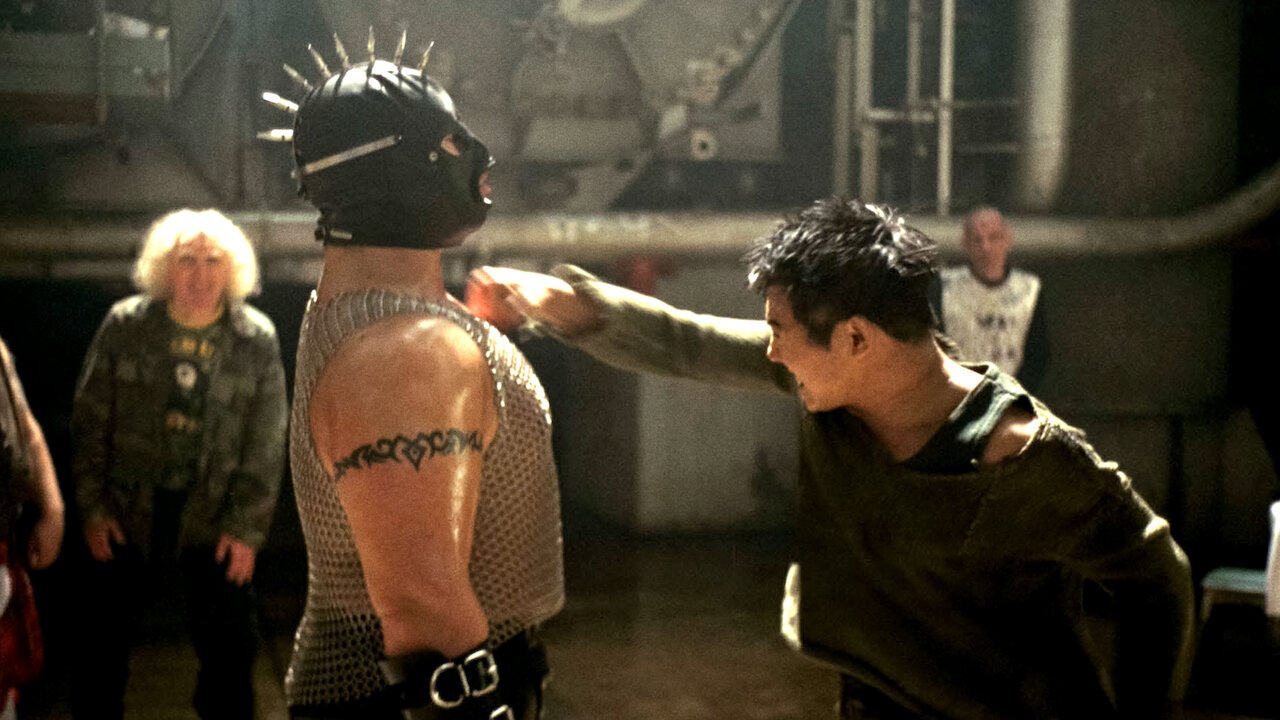
When this does happen, it is deliberately jarring, and therefore actually upsetting. You have become nicely relaxed into the comfort of Danny’s new world, so it shakes you up as a viewer.
There are other strands. Danny finds out the significance of the teddy bear in his cage, and it unlocks dark memories of how he came to be Bart’s attack dog as things build to an inevitable confrontation between his new reality and his previous life.
The final action scene brought to mind the final confrontation in Predator 2, with the multi-level chase through inhabited apartments.
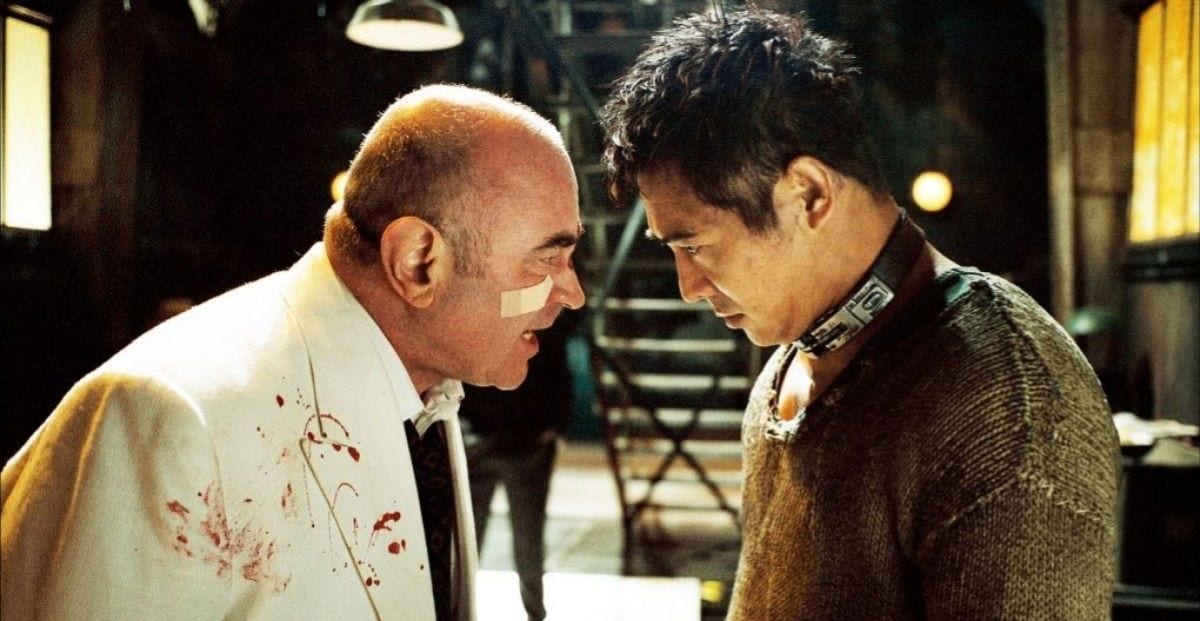
All of this is wrapped in nicely understated music from Massive Attack. It is no surprise to discover it is directed by Louis Letterier (The Transporter, The Incredible Hulk, Fast X) and produced by Luc Besson. However, that mid-act detour, which could have easily been a wrong turn, is much more quiet and thoughtful than you would usually expect from that team-up.
As a result, it’s something more than the sum of its parts.
By the time the final credits rolled after a nicely moving coda, complete with an emotional call back to earlier in the film, I somehow got something in my eye. Damn dust.
Check back every day for movie news and reviews at the Last Movie Outpost
